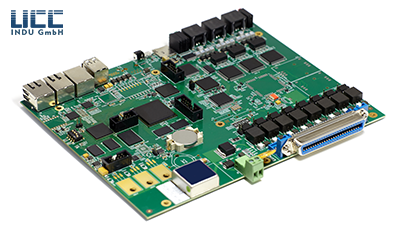 Turkey
Turkey
A microcontroller unit (MCU) is a microcomputer that integrates a processor core, memory, and various peripheral interfaces, and is widely used in embedded systems. With the rapid development of the Internet of Things (IoT) and intelligent devices, the demand for MCUs continues to grow, and they have become an important product in the electronic semiconductor trade. This article will provide a more detailed introduction to the basic composition, working principle, classification and application areas of MCU, aiming to provide readers of Science and Technology Forum with accurate and comprehensive science and technology content.

Basic Composition and Architecture of MCU
MCU is usually composed of the following main parts:
Central Processing Unit (CPU): Responsible for decoding and executing instructions, the core part usually adopts RISC or CISC architecture, and currently most MCUs adopt RISC architecture to achieve high efficiency and low power consumption.
Memory: Including Flash memory for storing program code, RAM for data caching, and EEPROM and other specialised memories to meet different storage needs.
Peripheral interfaces: such as timers, serial ports (UART, SPI, I²C), analogue-to-digital converters (ADCs), digital inputs and outputs (GPIOs), etc., to ensure that the MCU is able to interact with sensors, actuators, and other external devices to achieve data interaction.
System Clock and Power Management Module: Ensures stable operation of the MCU and realises a low-power design, which is particularly suitable for portable devices that are sensitive to energy consumption.
This highly integrated design not only significantly reduces system size, but also demonstrates significant advantages in terms of power consumption and cost.
Principle of operation and development process
MCU achieves the control and management of various external devices through pre-written firmware programs, and its basic working principle includes:
Programme storage and execution: the programme is stored in the flash memory and executed by the CPU according to a predetermined clock frequency, line by line.
Data processing and peripheral control: the data in the memory is processed and the input/output operation is completed through the peripheral interface to achieve the collection of sensor data and the control of the actuator.
Interrupt processing: In order to improve real-time, MCU often uses interrupt mechanism, when an external event occurs, it immediately interrupts the current operation and responds quickly to improve the overall real-time and reliability of the system.
The development process of MCU generally includes requirement analysis, system design, firmware writing, debugging verification and final application deployment, in which the embedded development environment and tool chain play a key role in the actual development.
Classification and Selection of MCU
MCUs can be classified into various types according to their performance and application areas:
8-bit MCU: Usually used for simple control tasks, such as home appliances and small consumer electronics, featuring low cost and low power consumption.
16-bit MCUs: offer high processing power and are suitable for control systems of moderate complexity.
32-bit MCU: With powerful computing power and rich peripheral interfaces, it is commonly used in industrial control, automotive electronics and IoT devices.
When selecting MCUs, designers need to consider a variety of factors such as processing speed, memory capacity, power consumption, peripheral support and cost to ensure that they meet specific application requirements.
Application Areas and Case Studies
MCUs are widely used in various fields, mainly including:
Consumer electronics: smart home devices, wearable devices, smart speakers, etc.; for example, certain smartwatches use low-power 32-bit MCUs to implement heart rate monitoring and data synchronisation functions.
Industrial control: In automated production lines and environmental monitoring systems, MCUs are responsible for real-time acquisition and processing of sensor data to ensure production safety and efficiency.
Automotive electronics: Engine Control Units (ECUs) and body control modules in modern automobiles rely on MCUs to achieve precision control and ensure driving safety.
Medical equipment: In portable monitors and intelligent diagnostic equipment, MCUs achieve real-time acquisition and processing of patient data to improve medical efficiency and accuracy.
MCU Suppliers and Market Trends
The global MCU market is dominated by a number of prominent vendors that offer a wide range of product lines covering a wide range of MCUs from 8-bit to 32-bit. e.g.:
NXP (NXP): mainly offers 16-bit and 32-bit MCUs, which are widely used in automotive electronics, industrial control, and IoT.
Microchip: 16-bit and 32-bit MCUs for consumer electronics, industrial automation and automotive electronics.
ST Microelectronics (STMicroelectronics): mainly 32-bit MCUs, widely used in smart home, industrial automation and medical equipment.
With the rapid development of the Internet of Things and artificial intelligence, MCUs are moving towards a balance of high performance and low power consumption, improved security and reliability, and higher integration. These trends bring new opportunities and challenges for electronic semiconductor traders.
Conclusion
As a core component in embedded systems, MCU plays an irreplaceable role in various fields with its high degree of integration and flexibility. As technology continues to advance and application needs grow, MCUs will usher in more breakthroughs in terms of high performance, low power consumption and security to drive the development of the intelligent and automated era. By focusing on these trends, electronic semiconductor traders such as UCC INDU GmbH can optimise their product portfolios and offer their customers more competitive solutions.
Sorumluluk Reddi: Bu sayfada verilen bilgiler yalnızca bilgilendirme amaçlıdır ve bilgilerin doğruluğunu veya eksiksizliğini garanti etmiyoruz ve kullanımından kaynaklanan herhangi bir kayıp veya hasar için sorumluluk kabul etmiyoruz.
Ürün bilgileri güncellemelerimizi ve özel tekliflerimizi kaçırmayın. E-posta adresinizi girin, abone ol'a tıklayın ve gelen kutunuza sürekli olarak ilham ve bilgi akışı olsun. Gizliliğinize saygı göstereceğimize ve asla spam göndermeyeceğimize söz veriyoruz.Bize ulaşın: Formu dikkatlice doldurmanız, coşkulu hizmetimizle ödüllendirilir!
2025-06-16
2025-06-10
2025-05-13
2025-05-09
2025-05-07
2025-04-29
2025-04-27
2025-04-23